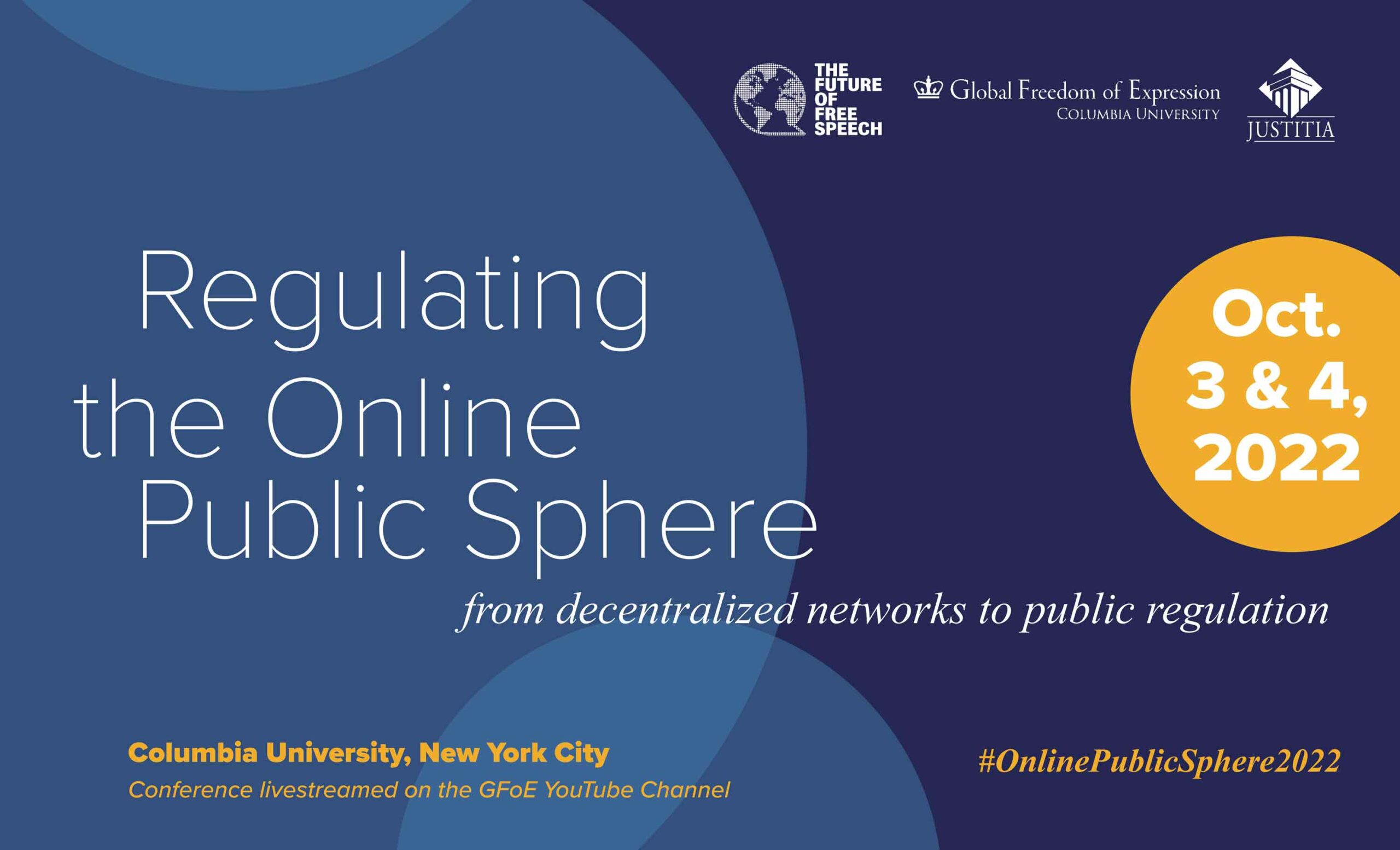
Watch the stream from 2 days of talks and discussions:
DAY 1
DAY 2
Time: 9:50am-4:30pm ET Day 2: 10:00am-4:30pm ET
Place: Online (Registration needed).
The stakes could not be higher for finding a solution for how to regulate the global public sphere, with the survival of modern democratic governance hanging in the balance. The power the big platforms wield over public discourse has distorted the marketplace of ideas, to a point where there is broad consensus internationally that some form of state intervention is necessary. In the United States, that realization is particularly contentious as it is at odds with US tradition and the First Amendment, which favors competition over regulation not only of the economy but also of ideas. As frustrations rise over how to address these issues, and competing visions of regulation emerge from the Digital Markets Act in Europe, to the Access Act in the United States, to the Texas Social Media Law, alternative technical solutions, rather than political ones, look increasingly worthy of consideration.
In this context, Columbia Global Freedom of Expression and Justitia present the “Regulating the Online Public Sphere: From Decentralized Networks to Public Regulation” Conference, which will take place on October 3 & 4, 2022. On the first day, speakers will discuss new models of decentralized networks and, on the second day, the different regional approaches to public and private regulation of content moderation on the Internet. The conference is an initiative of the Future of Free Speech project.
Participants can register to receive the links for the event and join virtually. The conference will be livestreamed on the GFoE YouTube channel.
Register Here!
Agenda
DAY 1 – MONDAY, OCTOBER 3, 2022
| 10:00-10:10am | Welcome Remarks by Columbia University |
| 10:10-10:20am | Presentation of the First Day Jacob Mchangama, Founder and Executive Director, Justitia and Future of Free Speech Project |
|
10:20-11:50am
|
Session I: Mapping the Decentralized Ecosystem Moderator: Mike Masnick, CEO, The Copia Institute Speakers: Daphne Keller, Director of Program on Platform Regulation, Stanford Cyber Policy Center Golda Velez, Co-Chief Executive Officer, What’s Cookin’ Inc (Twitter’s BlueSky) Alex Feerst, CEO, Murmuration Labs – Law, Policy, Trust & Safety Alan Z. Rozenshtein, Associate Professor of Law, University of Minnesota Law School |
| 11:50-12:00pm | Break |
|
12:00-1:30pm
|
Session II: How to Get There from Here? Regulatory Requirements and Necessary Standards Moderator: |
|
2:30-2:35pm
|
Greetings from UNESCO & The Way Forward in Multilateral Regulatory Policy: Guilherme Canela Godoi, Chief of the section of Freedom of Expression and Safety of Journalists, UNESCO |
|
2:35-4:30pm
|
Session III: Business Viability: Decentralizing Power and Opening Up Competition Moderator: Farzaneh Badiei, Head of Outreach and Engagement, Digital Trust and Safety Partnership |
DAY 2 – TUESDAY, OCTOBER 4, 2022
| 10:00-10:10am | Opening Remarks & Keynote Introduction: Catalina Botero, Columbia Global Freedom of Expression; Co-Chair, Oversight Board of Meta |
|---|---|
|
10:10-11:30am
|
Session IV, Part 1: Regulating Online Speech: Between the First Amendment and the Digital Services Act Moderator: Pamela San Martin, Board Member, Oversight Board of Meta |
| 11:30-11:45am | Break |
| 11:45-1:00pm |
Session IV, Part 2: Regulating Online Speech: Between the First Amendment and the Digital Services Act Moderator: Jamal Greene, Dwight Professor of Law, Columbia Law School; Co-Chair, Oversight Board of Meta |
|
1:30-2:45pm
|
Session V: International Human Rights Law as the Basic Framework of Meta’s Oversight Board Decisions Co-hosted in partnership with the Oversight Board of MetaModerator: Joel Simon, Fellow, Tow Center for Digital Journalism at Columbia Journalism School Speakers: Joan Barata, Intermediary Liability Fellow at Cyber Policy Center, Stanford University Daphne Keller, Director of Program on Platform Regulation, Stanford Cyber Policy Center Susan Benesch, Founder and Director, Dangerous Speech Project Kate Klonick, Associate Professor of Law, St John’s University Monroe Price, Director of the Center for Global Communication Studies, Annenberg School for Communication at the University of Pennsylvania |
| 2:45-3:15pm | Break |
|
3:15-4:30pm
|
(ONLINE ONLY IN SPANISH) Session VI: El derecho internacional de los derechos humanos como marco de las decisiones del Consejo de Supervisión de Meta Co-hosted in partnership with the Oversight Board of MetaModerador & Presentación: Joan Barata, Intermediary Liability Fellow at Cyber Policy Center, Stanford University Panelistas: Susan Benesch, Founder and Director, Dangerous Speech Project Agustina Del Campo, Director, Centro de Estudios en Libertad de Expresión y Acceso a la Información (CELE) Carlos Cortés Castillo, Professor, Universidad de Los Andes |
*All times are in Eastern Standard Time (ET).
About
DAY 1: THE FUTURE OF DECENTRALIZED NETWORKS AND FREE SPEECH
Decentralized network models, such as “middleware,” federated and distributed, have gained attention in recent years as a remedy for a variety of informational harms while protecting freedom of speech. These networks, based on open protocols coordinating with the existing platforms, would enable diverse applications with unique interfaces where users have greater control over their content curation, privacy and data. Blockchain technologies further offer possible solutions to the viral spread of disinformation, and the preservation of content over time, among others. They would not only create competition in the marketplace but also restore control over communications to the individual, in keeping with the original vision of the internet before it was co-opted by big companies. These models could significantly reduce the levels of information abuse as each user would be able to select transparent filters based on their own interests and privacy levels, thereby also reducing the need for external regulation or censorship. Each of these alternatives offer a range of solutions, however, they also come with their own risks if they are not compliant with international human rights standards from the beginning.
What is clear at this moment in time, is that “you can’t get there from here.” Hence, the first challenges are how to enable their evolution in light of today’s market concentration and regulatory environment. Examples of decentralized networks have been around for years, but they have not gained substantial market share, and one of the most promising versions, Twitter’s BlueSky, is still under development. Platforms will ultimately need to either be forced through antitrust laws to open up competition, or willingly support these new protocols-based systems as an option to the intractable and costly problems of current content moderation. Other requirements for their viability include sufficient levels of interoperability across the ecosystem, as well as mandatory access, which will require regulatory intervention similar to what has taken place in the telecommunications sector. Such changes could create opportunities for new business models which are not driven by data monetization, but rather are service based such as for content curation or private datastores. For any of the above to come to fruition, and to avoid mistakes of the past, now is the time to set the necessary standards and policies that are rights protective for these new ecosystems and pro-actively consider how to mitigate the associated risks.
To that end, The Future of Free Speech Project and Columbia Global Freedom of Expression seek to bring together a group of stakeholders from the technology industry, civil society and academia for a conference to foster a participatory dialogue from a global perspective. The purpose of the conference is to build a holistic understanding of the challenges at hand. Likewise, we aim to promote knowledge of digital innovation and good practices in Freedom of Expression and facilitate the exchange of experiences between key actors regarding emerging decentralized networks, existing norms and standards (hard and soft law) in the field, and the implications for Human Rights.
Session I
This panel will define the main decentralized network models, including federated and distributed/blockchain, and discuss the technical solutions they offer, and cannot offer, for content moderation and curation. They will further consider how each addresses the problems of algorithmic transparency, disinformation and censorship, and then assess the risk factors, such as filter bubbles/extremist communities and data privacy concerns. The panel will assess how to prioritize the competing values and goals, to identify what guarantees and safeguards are necessary to ensure the protection of users’ rights in these models.
Session II
This session will explore the market and regulatory challenges to creating an enabling environment for these alternative networks. Speakers will consider necessary minimum standards and what policies should be considered to ensure the protection of human rights are built into the different phases of evolution. Specifically, they will address unbundling and mandatory access, interoperability, data portability, and privacy protection.
Session III
The moderator will speak with representatives of leading companies to learn about the market challenges they face, their strategies for navigating the current landscape and what incentives they think would improve innovation and competition. Panelists share their perspectives on why and how the market must change to support new players, but also to avoid the “race to the bottom.” They will explore what kind of business models are emerging as alternatives to monetizing data that allow for profitability but also ensure transparency, data protection, and adequate affordable curation.
DAY 2: REGULATING ONLINE SPEECH
Despite the latest alternatives of decentralized moderation, such as the ones that will be discussed on the first day of the conference, there are also different proposals for public regulation of freedom of expression in the digital sphere which are fundamental to discuss. The technological optimism that accompanied the emergence of social networks suggested that the absence of regulation was the best way for these networks to optimize their democratizing potential. However, over time, social networks have become not only a place through which people connect, access knowledge, discuss issues of public interest and exercise greater political control, but also a space where harms – such as hate speech, discrimination, harassment, bullying, among others – proliferate and result in actual torment in people’s lives offline and a challenge for democracy.
Faced with this new reality, platforms have expanded their powers by implementing new community rules online while also substantially increasing the amount of content they remove. In this context, legitimate claims have arisen that must be addressed regarding, on the one hand, the proliferation of speech that cause damage to people without sufficient remedies and, on the other hand, an “over”moderation of content by the platforms that is opaque, which can exclude content that is protected by freedom of expression from the digital conversation. Therefore, it is essential to discuss the existing regulatory options including recent legislatives proposals, the Texas Social Media Law, the proposals promoted by presidents such as Jair Bolsonaro in Brazil, and the Digital Services package in Europe.
Consequently, the second day of the conference will analyze the distinct alternative approaches to the regulation of online speech between the U.S., Europe and Latin America. The panels will focus on the advantages of different regional regulatory approaches, on state and private speech regulation, on regulation through procedural and transparency duties, and situate online speech regulation within the challenges of ensuring human rights and social cohesion in digitalized communication spaces. The discussion will also include existing proposals for regulated self-regulation and compare and contrast regional case-law.
Session IV
These panels seek to analyze the distinct alternative approaches to the regulation of online speech between the U.S., Europe and Latin America. The panels will focus on the advantages of different regional regulatory approaches, on state and private speech regulation, on regulation through procedural and transparency duties, and situate online speech regulation within the challenges of ensuring human rights and social cohesion in digitalized communication spaces.
Session V & Session VI
The Meta Oversight Board was created to help “answer some of the most difficult questions around freedom of expression online: what to take down, what to leave up and why”. The Board can also make policy recommendations for changes in the way that the company operates its community standards and practices. One of the key tasks of the Board is to assess consistency between content decisions taken by Facebook and Instagram and their own internal (private) principles and rules. The overview of the decisions adopted so far by the OSB shows that the Board has used a solid human rights-based approach, putting international legal standards at the center of its internal debates and determinations. This scrutiny has even taken the Board, in some cases, to the point of criticizing Community Standards and other moderation documents as the basis for the final decision, thus recommending their repeal or reform.
The panels will discuss how human rights have become the basic framework of the decisions of the Board, and how legal standards originally established to protect individuals vis-à-vis limitations imposed by State authorities have been adapted to the completely different reality of privately enforcing content policies at scale. Another important matter for debate is to what extent the Board is a solution to be adopted by different types of platforms as a tool for better handling conflicts around content moderation and improving consistency and respect for human rights. Moreover, will this instrument reshape the legal interpretation of human rights in the digital realm? Can we expect a dialogue between the Board(s) doctrine and the standards set by international bodies and regional courts? Could decisions of the only existing oversight board end (so far) up setting the basic constitutional standards of content moderation across platforms? Would in any case this be a desirable outcome?
Speakers
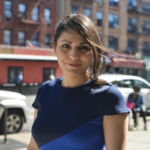 Dr. Farzaneh Badiei is the head of outreach and engagement at Digital Trust and Safety Partnership. She is the founder of Digital Medusa, an initiative that focuses on protecting the core values of our global digital space with sound governance. For the past decade, Farzaneh has directed and led projects about Internet and social media governance. She has also been a leader in building and engaging with diverse communities and stakeholders. She has undertaken research at Yale Law School, Georgia Institute of Technology and the Humboldt Institute for Internet and Society in Berlin.
Dr. Farzaneh Badiei is the head of outreach and engagement at Digital Trust and Safety Partnership. She is the founder of Digital Medusa, an initiative that focuses on protecting the core values of our global digital space with sound governance. For the past decade, Farzaneh has directed and led projects about Internet and social media governance. She has also been a leader in building and engaging with diverse communities and stakeholders. She has undertaken research at Yale Law School, Georgia Institute of Technology and the Humboldt Institute for Internet and Society in Berlin.
 Joan Barata works on freedom of expression, media regulation and intermediary liability issues. He teaches at various universities in different parts of the world and has published a large number of articles and books on these subjects, both in academic and popular press. His work has taken him in most regions of the world, and he is regularly involved in projects with international organizations such as UNESCO, the Council of Europe, the Organization of American States or the Organization for Security and Cooperation in Europe, where was the principal advisor to the Representative on Media Freedom. Joan Barata also has experience as a regulator, as he held the position of Secretary General of the Audiovisual Council of Catalonia in Spain and was member of the Permanent Secretariat of the Mediterranean Network of Regulatory Authorities.
Joan Barata works on freedom of expression, media regulation and intermediary liability issues. He teaches at various universities in different parts of the world and has published a large number of articles and books on these subjects, both in academic and popular press. His work has taken him in most regions of the world, and he is regularly involved in projects with international organizations such as UNESCO, the Council of Europe, the Organization of American States or the Organization for Security and Cooperation in Europe, where was the principal advisor to the Representative on Media Freedom. Joan Barata also has experience as a regulator, as he held the position of Secretary General of the Audiovisual Council of Catalonia in Spain and was member of the Permanent Secretariat of the Mediterranean Network of Regulatory Authorities.
 Susan Benesch founded and directs the Dangerous Speech Project (dangerousspeech.org), to study speech that can inspire violence – and to find ways to prevent this, without infringing on freedom of expression. She conducts research on methods to diminish harmful speech online, or the harm itself. Trained as a human rights lawyer at Yale, Susan has worked for NGOs including Amnesty International and Human Rights First. She is also Faculty Associate of the Berkman Klein Center for Internet & Society at Harvard University.
Susan Benesch founded and directs the Dangerous Speech Project (dangerousspeech.org), to study speech that can inspire violence – and to find ways to prevent this, without infringing on freedom of expression. She conducts research on methods to diminish harmful speech online, or the harm itself. Trained as a human rights lawyer at Yale, Susan has worked for NGOs including Amnesty International and Human Rights First. She is also Faculty Associate of the Berkman Klein Center for Internet & Society at Harvard University.
 Catalina Botero Marino is the consulting director of Global Freedom of Expression. She is a lawyer, director of the UNESCO Chair on Freedom of Expression at the Universidad de Los Andes, co-chair of the Oversight Board of Facebook and Instagram, member of the external transparency panel of the Inter-American Development Bank, commissioner of the International Commission of Jurists and member of the Advisory Board of the International Bar Association’s Human Rights Institute. She is an adjunct professor at American University’s Human Rights Academy. She was Special Rapporteur for Freedom of Expression of the Inter-American Commission on Human Rights of the OAS, Dean of the Faculty of Law of the Universidad de Los Andes, and an Associate Judge of the Constitutional Court and of the Council of State in Colombia.
Catalina Botero Marino is the consulting director of Global Freedom of Expression. She is a lawyer, director of the UNESCO Chair on Freedom of Expression at the Universidad de Los Andes, co-chair of the Oversight Board of Facebook and Instagram, member of the external transparency panel of the Inter-American Development Bank, commissioner of the International Commission of Jurists and member of the Advisory Board of the International Bar Association’s Human Rights Institute. She is an adjunct professor at American University’s Human Rights Academy. She was Special Rapporteur for Freedom of Expression of the Inter-American Commission on Human Rights of the OAS, Dean of the Faculty of Law of the Universidad de Los Andes, and an Associate Judge of the Constitutional Court and of the Council of State in Colombia.
 Barbora Bukovská has been ARTICLE 19’s Senior Director for Law and Policy since 2009. She leads the development of ARTICLE 19 policies and provides legal oversight across the organization. Barbora has extensive experience working on a range of human rights issues, including protection from discrimination, access to justice, deprivation of liberty, reproductive rights, and community development. She also initiated about 50 cases at the European Court of Human Rights on these issues. From 2006 to 2008, she was the Legal Director at the Mental Disability Advocacy Centre, an international organization working on the rights of people with disabilities in Europe and Central Asia.
Barbora Bukovská has been ARTICLE 19’s Senior Director for Law and Policy since 2009. She leads the development of ARTICLE 19 policies and provides legal oversight across the organization. Barbora has extensive experience working on a range of human rights issues, including protection from discrimination, access to justice, deprivation of liberty, reproductive rights, and community development. She also initiated about 50 cases at the European Court of Human Rights on these issues. From 2006 to 2008, she was the Legal Director at the Mental Disability Advocacy Centre, an international organization working on the rights of people with disabilities in Europe and Central Asia.
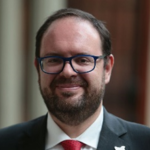 Guilherme Canela Godoi holds the position of chief of the section of Freedom of Expression and Safety of Journalists at UNESCO headquarters in Paris. For 8 years, he held the position of Communication and Information Regional Adviser for Latin America and the Caribbean at UNESCO Montevideo Office. During those years, he performed as Regional Coordinator of the UNESCO Initiative for the Promotion of Democracy and Freedom of Expression in judicial systems in Latin America. He has a B.A. in International Relations from the University of Brasília (UNB) and a Master’s Degree on Political Science from the University of São Paulo (USP).
Guilherme Canela Godoi holds the position of chief of the section of Freedom of Expression and Safety of Journalists at UNESCO headquarters in Paris. For 8 years, he held the position of Communication and Information Regional Adviser for Latin America and the Caribbean at UNESCO Montevideo Office. During those years, he performed as Regional Coordinator of the UNESCO Initiative for the Promotion of Democracy and Freedom of Expression in judicial systems in Latin America. He has a B.A. in International Relations from the University of Brasília (UNB) and a Master’s Degree on Political Science from the University of São Paulo (USP).
 Carlos Cortés Castilo
Carlos Cortés Castilo
 Zoe Darmé leads public policy for Google Search, specifically on issues related to content, privacy, AI, and trust. In this role, she is responsible for managing advocacy, external engagement, data governance, and content governance — in support of Search’s mission to organize the world’s information and make it universally accessible and useful. Previously, Zoe worked at Microsoft and Facebook, where she focused on multistakeholder approaches to trust and safety, content governance and moderation, and the overall safety landscape online. Zoe also led global outreach for the establishment of Facebook’s Oversight Board. Prior to joining the tech industry, Zoe served in various policy and program capacities with the United Nations’ Department of Peacekeeping Operations. While Director of Strategic Initiatives at John Jay College for Criminal Justice, Zoe led teams conducting research and providing technical assistance on homicides and gang violence. Previously, she served with the U.S. Department of Justice, where she focused on police and justice system reform.
Zoe Darmé leads public policy for Google Search, specifically on issues related to content, privacy, AI, and trust. In this role, she is responsible for managing advocacy, external engagement, data governance, and content governance — in support of Search’s mission to organize the world’s information and make it universally accessible and useful. Previously, Zoe worked at Microsoft and Facebook, where she focused on multistakeholder approaches to trust and safety, content governance and moderation, and the overall safety landscape online. Zoe also led global outreach for the establishment of Facebook’s Oversight Board. Prior to joining the tech industry, Zoe served in various policy and program capacities with the United Nations’ Department of Peacekeeping Operations. While Director of Strategic Initiatives at John Jay College for Criminal Justice, Zoe led teams conducting research and providing technical assistance on homicides and gang violence. Previously, she served with the U.S. Department of Justice, where she focused on police and justice system reform.
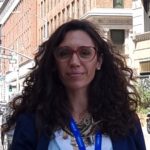 Agustina Del Campo directs the Center for Studies on Freedom of Expression (CELE) at Universidad de Palermo and is vice chair of the Board of the Global Network Initiative. She has a law degree and a master’s in international legal studies with a specialization in international human rights law. Agustina teaches graduate and postgraduate courses at Universidad de Palermo, Universidad de Buenos Aires and Universidad de San Andres in Argentina. Compiler of the series internet and human rights and towards an internet free of censorship at CELE. She also serves as a member of the editing board at Revista Chilena de derecho y Tecnologia, and she is a member of the board of Access Now.
Agustina Del Campo directs the Center for Studies on Freedom of Expression (CELE) at Universidad de Palermo and is vice chair of the Board of the Global Network Initiative. She has a law degree and a master’s in international legal studies with a specialization in international human rights law. Agustina teaches graduate and postgraduate courses at Universidad de Palermo, Universidad de Buenos Aires and Universidad de San Andres in Argentina. Compiler of the series internet and human rights and towards an internet free of censorship at CELE. She also serves as a member of the editing board at Revista Chilena de derecho y Tecnologia, and she is a member of the board of Access Now.
 Cory Doctorow is a senior advisor for the Electronic Frontier Foundation as well as a science fiction author, activist, journalist and blogger — the editor of Pluralistic and the author of young adult novels like LITTLE BROTHER and HOMELAND and novels for adults like ATTACK SURFACE and WALKAWAY, in addition to nonfiction books like HOW TO DESTROY SURVEILLANCE CAPITALISM. He is the former European director of the Electronic Frontier Foundation and co-founded the UK Open Rights Group. Born in Toronto, Canada, he now lives in Los Angeles.
Cory Doctorow is a senior advisor for the Electronic Frontier Foundation as well as a science fiction author, activist, journalist and blogger — the editor of Pluralistic and the author of young adult novels like LITTLE BROTHER and HOMELAND and novels for adults like ATTACK SURFACE and WALKAWAY, in addition to nonfiction books like HOW TO DESTROY SURVEILLANCE CAPITALISM. He is the former European director of the Electronic Frontier Foundation and co-founded the UK Open Rights Group. Born in Toronto, Canada, he now lives in Los Angeles.
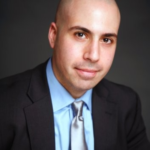 Alex Feerst leads Murmuration Labs, which works with leading tech companies and web3 projects to develop online trust and safety policies, software, and operations. He was previously Head of Legal and Head of Trust and Safety at Medium, and General Counsel at Neuralink. In 2021, he co-founded the Digital Trust and Safety Partnership, the first industry-led initiative to establish best practices for ensuring and assessing online safety. He serves as a board member of the MobileCoin Foundation, an advisor to the Filecoin Foundation, and an editorial board member of the Journal of Online Trust & Safety.
Alex Feerst leads Murmuration Labs, which works with leading tech companies and web3 projects to develop online trust and safety policies, software, and operations. He was previously Head of Legal and Head of Trust and Safety at Medium, and General Counsel at Neuralink. In 2021, he co-founded the Digital Trust and Safety Partnership, the first industry-led initiative to establish best practices for ensuring and assessing online safety. He serves as a board member of the MobileCoin Foundation, an advisor to the Filecoin Foundation, and an editorial board member of the Journal of Online Trust & Safety.
 Martin Fertmann is a researcher at the Leibniz-Institute for Media Research | Hans-Bredow-Institute and a doctoral candidate at the University of Hamburg’s Center for Law in Digital Transformation. His research focuses on commercial content moderation, platform regulation and their respective compatibility with international human rights standards. He has published numerous contributions within his research focus and co-chaired academic conferences on human rights in internet governance and on transparency in tech regulation. He has participated in a research sprint at the Berkman Klein Center for Internet and Society (Harvard University) and undertaken research visits to LIP6 Lab in Paris (Sorbonne University and the French National Center for Scientific Research) and the Norwegian Centre for Human Rights (University of Oslo). Before pursuing his PhD, Martin studied law in Hamburg and Beijing, with a focus on media law, while volunteering with the University of Hamburg’s Cyber Law Clinic.
Martin Fertmann is a researcher at the Leibniz-Institute for Media Research | Hans-Bredow-Institute and a doctoral candidate at the University of Hamburg’s Center for Law in Digital Transformation. His research focuses on commercial content moderation, platform regulation and their respective compatibility with international human rights standards. He has published numerous contributions within his research focus and co-chaired academic conferences on human rights in internet governance and on transparency in tech regulation. He has participated in a research sprint at the Berkman Klein Center for Internet and Society (Harvard University) and undertaken research visits to LIP6 Lab in Paris (Sorbonne University and the French National Center for Scientific Research) and the Norwegian Centre for Human Rights (University of Oslo). Before pursuing his PhD, Martin studied law in Hamburg and Beijing, with a focus on media law, while volunteering with the University of Hamburg’s Cyber Law Clinic.
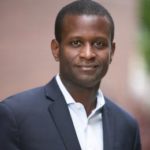 Jamal Greene is the Dwight Professor of Law at Columbia Law School, where he teaches constitutional law, comparative constitutional law, the law of the political process, First Amendment, and federal courts. His scholarship focuses on the structure of legal and constitutional argument. Professor Greene is the author of numerous articles and book chapters and is a frequent media commentator on constitutional law and the Supreme Court. Prior to joining Columbia’s faculty he was an Alexander Fellow at New York University Law School. Professor Greene served as a law clerk to the Hon. Guido Calabresi on the U.S. Court of Appeals for the Second Circuit and for the Hon. John Paul Stevens on the U.S. Supreme Court. He currently serves as co-chair of the Oversight Board, an independent body set up to review content moderation decisions on Facebook and Instagram.
Jamal Greene is the Dwight Professor of Law at Columbia Law School, where he teaches constitutional law, comparative constitutional law, the law of the political process, First Amendment, and federal courts. His scholarship focuses on the structure of legal and constitutional argument. Professor Greene is the author of numerous articles and book chapters and is a frequent media commentator on constitutional law and the Supreme Court. Prior to joining Columbia’s faculty he was an Alexander Fellow at New York University Law School. Professor Greene served as a law clerk to the Hon. Guido Calabresi on the U.S. Court of Appeals for the Second Circuit and for the Hon. John Paul Stevens on the U.S. Supreme Court. He currently serves as co-chair of the Oversight Board, an independent body set up to review content moderation decisions on Facebook and Instagram.

David Kaye is a clinical professor of law at the University of California, Irvine, School of Law, and served as the UN Special Rapporteur on the promotion and protection of the right to freedom of opinion and expression from 2014 to 2020. He joined the faculty at the UC Irvine School of Law in 2012. He was the founding Executive Director of the UCLA School of Law International Human Rights Program, where he taught international human rights law and directed the International Justice Clinic. From 1995 to 2005, he served in the Office of the Legal Adviser at the State Department, responsible for such issues as human rights, international humanitarian law, the use of force, international organizations, and U.S. foreign relations law. He was also a legal adviser to the American Embassy in The Hague. He is author of Speech Police: The Global Struggle to Govern the Internet (Columbia Global Reports: 2019).
 Daphne Keller directs the Program on Platform Regulation at Stanford’s Cyber Policy Center, and was formerly the Director of Intermediary Liability at CIS. Her work focuses on platform regulation and Internet users’ rights. She has published both academically and in popular press; testified and participated in legislative processes; and taught and lectured extensively. Her recent work focuses on legal protections for users’ free expression rights when state and private power intersect, particularly through platforms’ enforcement of Terms of Service or use of algorithmic ranking and recommendations. Until 2015 Daphne was Associate General Counsel for Google, where she had primary responsibility for the company’s search products. She worked on groundbreaking Intermediary Liability litigation and legislation around the world and counseled both overall product development and individual content takedown decisions.
Daphne Keller directs the Program on Platform Regulation at Stanford’s Cyber Policy Center, and was formerly the Director of Intermediary Liability at CIS. Her work focuses on platform regulation and Internet users’ rights. She has published both academically and in popular press; testified and participated in legislative processes; and taught and lectured extensively. Her recent work focuses on legal protections for users’ free expression rights when state and private power intersect, particularly through platforms’ enforcement of Terms of Service or use of algorithmic ranking and recommendations. Until 2015 Daphne was Associate General Counsel for Google, where she had primary responsibility for the company’s search products. She worked on groundbreaking Intermediary Liability litigation and legislation around the world and counseled both overall product development and individual content takedown decisions.
 Prof. Dr. Matthias C. Kettemann, LL.M. (Harvard), is Professor of Innovation, Theory and Philosophy of Law at the Department for Theory and Future of Law at the University of Innsbruck and heads research programs and groups on digital law and platform governance at the Leibniz Institute for Media Research | Hans-Bredow-Institut (Hamburg) and the Humboldt Institute for Internet and Society (Berlin). In addition to his work at the HBI, Matthias C. Kettemann is a research group leader for “Global Constitutionalism and the Internet” and head of the research project “The Public International Law of the Internet” at the Alexander von Humboldt Institute for Internet and Society, Berlin. He is also the head of section of “International Law and the Internet” at the Max Planck Institute for Comparative Public Law and International Law and a member of the board of directors and research group leader for “Platform and Content Governance” at the Sustainable Computing Lab, Vienna University of Economics and Business.
Prof. Dr. Matthias C. Kettemann, LL.M. (Harvard), is Professor of Innovation, Theory and Philosophy of Law at the Department for Theory and Future of Law at the University of Innsbruck and heads research programs and groups on digital law and platform governance at the Leibniz Institute for Media Research | Hans-Bredow-Institut (Hamburg) and the Humboldt Institute for Internet and Society (Berlin). In addition to his work at the HBI, Matthias C. Kettemann is a research group leader for “Global Constitutionalism and the Internet” and head of the research project “The Public International Law of the Internet” at the Alexander von Humboldt Institute for Internet and Society, Berlin. He is also the head of section of “International Law and the Internet” at the Max Planck Institute for Comparative Public Law and International Law and a member of the board of directors and research group leader for “Platform and Content Governance” at the Sustainable Computing Lab, Vienna University of Economics and Business.
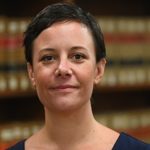 Kate Klonick is an Associate Professor of Law at St. John’s University. Klonick’s research focuses on law and technology, most recently on private platform governance of online speech. Professor Klonick holds an A.B. with honors from Brown University where she studied both modern American History and cognitive neuroscience, a J.D. from Georgetown University Law Center where she was a Senior Editor on the Georgetown Law Journal, and a Ph.D. in Law from Yale Law School. She clerked for Hon. Eric N. Vitaliano of the Eastern District of New York and Hon. Richard C. Wesley of the Second Circuit. She is an affiliated fellow at the Yale Law School Information Society Project and a non-resident fellow at the Brookings Institution. She is serving as a Visiting Scholar at the Rebooting Social Media Institute at Harvard University.
Kate Klonick is an Associate Professor of Law at St. John’s University. Klonick’s research focuses on law and technology, most recently on private platform governance of online speech. Professor Klonick holds an A.B. with honors from Brown University where she studied both modern American History and cognitive neuroscience, a J.D. from Georgetown University Law Center where she was a Senior Editor on the Georgetown Law Journal, and a Ph.D. in Law from Yale Law School. She clerked for Hon. Eric N. Vitaliano of the Eastern District of New York and Hon. Richard C. Wesley of the Second Circuit. She is an affiliated fellow at the Yale Law School Information Society Project and a non-resident fellow at the Brookings Institution. She is serving as a Visiting Scholar at the Rebooting Social Media Institute at Harvard University.
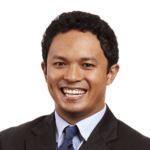 Michael Lwin has run the Koe Koe Tech Foundation in Myanmar for nearly a decade. Pre-coup, Koe Koe Tech had over 150 employees, 95% Myanmar nationals, with 55% women. In happier days, Koe Koe Tech worked on building fundamental civilian e-government, including digitalization of Supreme Court cases, health statistics, tax, water, and electricity bill payments, electronic medical records, and maternal and child health messaging. Michael is a lawyer (JD NYU, Arnold & Porter LLP) and a technologist (UPenn CS masters candidate, Agile/Scrum, React.js, Solidity, Hardhat, NestJS, C#/.NET, ELK stack). His team is building a decentralized platform for civil society to independently review Facebook, Twitter, and TikTok’s content moderation pipelines, based on Michael’s Yale Journal on Regulation article. Disgruntled by the lack of state response to the Myanmar could, Michael became interested in web3 as a possible alternative, and also works as a senior product manager for the 0VIX protocol.
Michael Lwin has run the Koe Koe Tech Foundation in Myanmar for nearly a decade. Pre-coup, Koe Koe Tech had over 150 employees, 95% Myanmar nationals, with 55% women. In happier days, Koe Koe Tech worked on building fundamental civilian e-government, including digitalization of Supreme Court cases, health statistics, tax, water, and electricity bill payments, electronic medical records, and maternal and child health messaging. Michael is a lawyer (JD NYU, Arnold & Porter LLP) and a technologist (UPenn CS masters candidate, Agile/Scrum, React.js, Solidity, Hardhat, NestJS, C#/.NET, ELK stack). His team is building a decentralized platform for civil society to independently review Facebook, Twitter, and TikTok’s content moderation pipelines, based on Michael’s Yale Journal on Regulation article. Disgruntled by the lack of state response to the Myanmar could, Michael became interested in web3 as a possible alternative, and also works as a senior product manager for the 0VIX protocol.
 Mike Masnick is the founder & editor of the popular Techdirt blog as well as the founder of the Silicon Valley think tank, the Copia Institute. In both roles, he explores the intersection of technology, innovation, policy, law, civil liberties, and economics. His writings have been cited by Congress and the EU Parliament. His pivotal 2019 paper, “Protocols, Not Platforms” was cited by Twitter founder Jack Dorsey as the inspiration for Twitter to explore a fundamental shift in strategy. Masnick and Techdirt have also been key players in the ongoing battles over net neutrality, encryption and anti-SLAPP laws. Via the Copia Institute, Masnick has pioneered new uses of games & simulations to help better explain complex present issues and explore future possibilities. Masnick is also known for coining the term “The Streisand Effect,” to describe how attempting to stifle speech online can serve to draw even more attention.
Mike Masnick is the founder & editor of the popular Techdirt blog as well as the founder of the Silicon Valley think tank, the Copia Institute. In both roles, he explores the intersection of technology, innovation, policy, law, civil liberties, and economics. His writings have been cited by Congress and the EU Parliament. His pivotal 2019 paper, “Protocols, Not Platforms” was cited by Twitter founder Jack Dorsey as the inspiration for Twitter to explore a fundamental shift in strategy. Masnick and Techdirt have also been key players in the ongoing battles over net neutrality, encryption and anti-SLAPP laws. Via the Copia Institute, Masnick has pioneered new uses of games & simulations to help better explain complex present issues and explore future possibilities. Masnick is also known for coining the term “The Streisand Effect,” to describe how attempting to stifle speech online can serve to draw even more attention.
 Alison McCauley is the Chief Advocacy Officer at Unfinished, and the founder of Unblocked Future, a strategy firm that helps emerging tech pioneers with thought leadership and go-to-market. Alison holds degrees in psychology, sociology and organizational behavior and development from Stanford University. For over five years, Alison has worked to raise awareness and understanding of the “new possible” unlocked by blockchain technology, and how that translates to a next era of the Web: Web3. Her focus on Web3 and blockchain technology builds on two decades of helping founders who work at the edge of possible to translate their work to the world and take their products to market. In 2018, Alison authored the best-selling book Unblocked, which projected how blockchains could shape organizations and culture.
Alison McCauley is the Chief Advocacy Officer at Unfinished, and the founder of Unblocked Future, a strategy firm that helps emerging tech pioneers with thought leadership and go-to-market. Alison holds degrees in psychology, sociology and organizational behavior and development from Stanford University. For over five years, Alison has worked to raise awareness and understanding of the “new possible” unlocked by blockchain technology, and how that translates to a next era of the Web: Web3. Her focus on Web3 and blockchain technology builds on two decades of helping founders who work at the edge of possible to translate their work to the world and take their products to market. In 2018, Alison authored the best-selling book Unblocked, which projected how blockchains could shape organizations and culture.
 Dave McGibbon is the co-founder and Chief Executive Officer of Passbase, a privacy focused identity verification tool. Launched in 2019, Passbase has since raised over $10 million in funding and now has offices in Berlin and New York. Dave previously spoke at Web Summit and Consumer Identity World and together with his co-founders was featured on the Forbes 30 under 30 list. Prior to Passbase, Dave was an investment associate at GoogleX where he helped to commercialize Alphabet’s ambitious moonshot projects.
Dave McGibbon is the co-founder and Chief Executive Officer of Passbase, a privacy focused identity verification tool. Launched in 2019, Passbase has since raised over $10 million in funding and now has offices in Berlin and New York. Dave previously spoke at Web Summit and Consumer Identity World and together with his co-founders was featured on the Forbes 30 under 30 list. Prior to Passbase, Dave was an investment associate at GoogleX where he helped to commercialize Alphabet’s ambitious moonshot projects.
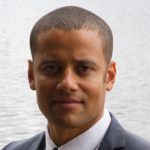
Jacob Mchangama is the founder and executive director of Justitia, a think tank focusing on human rights and a former Visiting Scholar at Columbia Global Freedom of Expression. He is a Senior Fellow at the Foundation for Individual Rights and Expression, member of the Forum on Information and Democracy’s Steering Committee for the working group on network accountability regimes, the Danish government’s independent Free Speech Commission, and a member of the steering committee of the World Expression Forum. Jacob has commented extensively on free speech and human rights in the media and academic journals including the Washington Post, the Wall Street Journal, The Economist, Foreign Affairs, Foreign Policy, Human Rights Quarterly and The Journal of Free Speech Law. He is the author of several books most recently the critically acclaimed “Free Speech: A History From Socrates to Social Media” (2022), and the writer and host of the podcast “Clear and Present Danger: A History of Free Speech”.
 Andrew McLaughlin is a partner at betaworks, a technology and media start-up studio based in New York City. At betaworks, Andrew is an operator, a company and product builder, a strategist, and an investor. Since joining in 2012, he has served as CEO of two betaworks companies, Digg and Instapaper. Andrew is on the board of Chartbeat, the real-time data analytics company. Andrew chairs the board of Access Now and director of the Sunlight Foundation. Andrew is a member of the Partnership for New York City Innovation Council, a Future Tense Fellow at the New America Foundation, an advisor to Data & Society, and a member of the Advisory Council of the Open Technology Fund. From 2011-13, Andrew served on the board of Code for America. In 2014-15, Andrew was a senior fellow in cybersecurity and Internet governance at Columbia University‘s School of International and Public Affairs.
Andrew McLaughlin is a partner at betaworks, a technology and media start-up studio based in New York City. At betaworks, Andrew is an operator, a company and product builder, a strategist, and an investor. Since joining in 2012, he has served as CEO of two betaworks companies, Digg and Instapaper. Andrew is on the board of Chartbeat, the real-time data analytics company. Andrew chairs the board of Access Now and director of the Sunlight Foundation. Andrew is a member of the Partnership for New York City Innovation Council, a Future Tense Fellow at the New America Foundation, an advisor to Data & Society, and a member of the Advisory Council of the Open Technology Fund. From 2011-13, Andrew served on the board of Code for America. In 2014-15, Andrew was a senior fellow in cybersecurity and Internet governance at Columbia University‘s School of International and Public Affairs.

PC: Beowulf Sheehan
Suzanne Nossel is Chief Executive Officer at PEN America and author of Dare to Speak: Defending Free Speech for All. Prior to joining PEN America, she served as the Chief Operating Officer of Human Rights Watch and as Executive Director of Amnesty International USA. She has served in the Obama Administration as Deputy Assistant Secretary of State for International Organizations, leading US engagement in the UN and multilateral institutions on human right issues, and in the Clinton Administration as Deputy to the US Ambassador for UN Management and Reform. Nossel coined the term “Smart Power,” which was the title of a 2004 article she published in Foreign Affairs Magazine and later became the theme of Secretary of State Hillary Clinton’s tenure in office. She is a featured columnist for Foreign Policy magazine and has published op-eds in The New York Times, Washington Post, and LA Times, as well as scholarly articles in Foreign Affairs, Dissent, and Democracy, among others. Nossel is a member of the Oversight Board, an international body that oversees content moderation on social media. She is a former senior fellow at the Century Foundation, the Center for American Progress, and the Council on Foreign Relations. Nossel is a magna cum laude graduate of both Harvard College and Harvard Law School.
Monroe Price
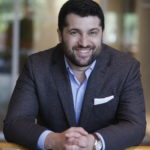 Alan Z. Rozenshtein is an Associate Professor of Law at the University of Minnesota Law School, a senior editor at Lawfare, and a term member of the Council on Foreign Relations. Previously, he served as an Attorney Advisor with the Office of Law and Policy in the National Security Division of the U.S. Department of Justice and a Special Assistant United States Attorney in the U.S. Attorney’s Office for the District of Maryland.
Alan Z. Rozenshtein is an Associate Professor of Law at the University of Minnesota Law School, a senior editor at Lawfare, and a term member of the Council on Foreign Relations. Previously, he served as an Attorney Advisor with the Office of Law and Policy in the National Security Division of the U.S. Department of Justice and a Special Assistant United States Attorney in the U.S. Attorney’s Office for the District of Maryland.
 Pamela San Martín is a lawyer from Mexico City who has dedicated her career to advancing human rights, freedom of expression and democratic institutions. Between 2014 and 2020, she served as one of 11 Electoral Councilors at Mexico’s National Electoral Institute — the highest position in the country’s electoral management body. There she worked on organizing peaceful elections, managing key issues of campaign regulation and freedom of speech and information, and developing policies to guarantee minority rights in democratic processes. She has also sat on the editorial board of one of Mexico’s most widely circulated newspapers. Prior to her time at the Electoral Institute, San Martín worked at Mexico City’s Human Rights Commission for almost a decade. She is currently a consultant on elections, democracy, and human rights, particularly in countries facing polarization and violence, and is a member of Meta’s Oversight Board.
Pamela San Martín is a lawyer from Mexico City who has dedicated her career to advancing human rights, freedom of expression and democratic institutions. Between 2014 and 2020, she served as one of 11 Electoral Councilors at Mexico’s National Electoral Institute — the highest position in the country’s electoral management body. There she worked on organizing peaceful elections, managing key issues of campaign regulation and freedom of speech and information, and developing policies to guarantee minority rights in democratic processes. She has also sat on the editorial board of one of Mexico’s most widely circulated newspapers. Prior to her time at the Electoral Institute, San Martín worked at Mexico City’s Human Rights Commission for almost a decade. She is currently a consultant on elections, democracy, and human rights, particularly in countries facing polarization and violence, and is a member of Meta’s Oversight Board.
 Joel Simon is a consultant for Global Freedom of Expression. He is also a fellow for the Tow Center for Digital Journalism at Columbia Journalism School and a senior visiting fellow at Columbia’s Knight First Amendment Institute. For over 15 years, he served as the executive director for the Committee to Protect Journalists (CPJ). Simon led the CPJ through a period of expansion. Before becoming executive director of CPJ, Simon served as the Americas program coordinator and then deputy director. As a journalist in Latin America, Simon covered the Guatemalan civil war, the Zapatista uprising in Southern Mexico, the debate over the North American Free Trade Agreement, and the economic turmoil in Cuba following the collapse of the Soviet Union. His latest book. The Infodemic; How Censorship and Lies Made the World Sicker and Less Free, co-authored with Robert Mahoney, was published in April 2022 from Columbia Global Reports.
Joel Simon is a consultant for Global Freedom of Expression. He is also a fellow for the Tow Center for Digital Journalism at Columbia Journalism School and a senior visiting fellow at Columbia’s Knight First Amendment Institute. For over 15 years, he served as the executive director for the Committee to Protect Journalists (CPJ). Simon led the CPJ through a period of expansion. Before becoming executive director of CPJ, Simon served as the Americas program coordinator and then deputy director. As a journalist in Latin America, Simon covered the Guatemalan civil war, the Zapatista uprising in Southern Mexico, the debate over the North American Free Trade Agreement, and the economic turmoil in Cuba following the collapse of the Soviet Union. His latest book. The Infodemic; How Censorship and Lies Made the World Sicker and Less Free, co-authored with Robert Mahoney, was published in April 2022 from Columbia Global Reports.
 Golda Velez has 30 years of software engineering experience including recent work combatting organized fraud rings through AI models at Postmates. She is also deeply involved in human rights advocacy through direct relationships with affected individuals, as well as creating opportunities for remote work for those impacted by world events. She has been involved with the community around the Bluesky project from Twitter and has untested proposals for how to address disinformation in a rich and heterogeneous ecosystem of permissionless trust claims (cooperation.org). She also works as an devops engineer for 3box.io, and resides in Tucson, Arizona with her family.
Golda Velez has 30 years of software engineering experience including recent work combatting organized fraud rings through AI models at Postmates. She is also deeply involved in human rights advocacy through direct relationships with affected individuals, as well as creating opportunities for remote work for those impacted by world events. She has been involved with the community around the Bluesky project from Twitter and has untested proposals for how to address disinformation in a rich and heterogeneous ecosystem of permissionless trust claims (cooperation.org). She also works as an devops engineer for 3box.io, and resides in Tucson, Arizona with her family.
